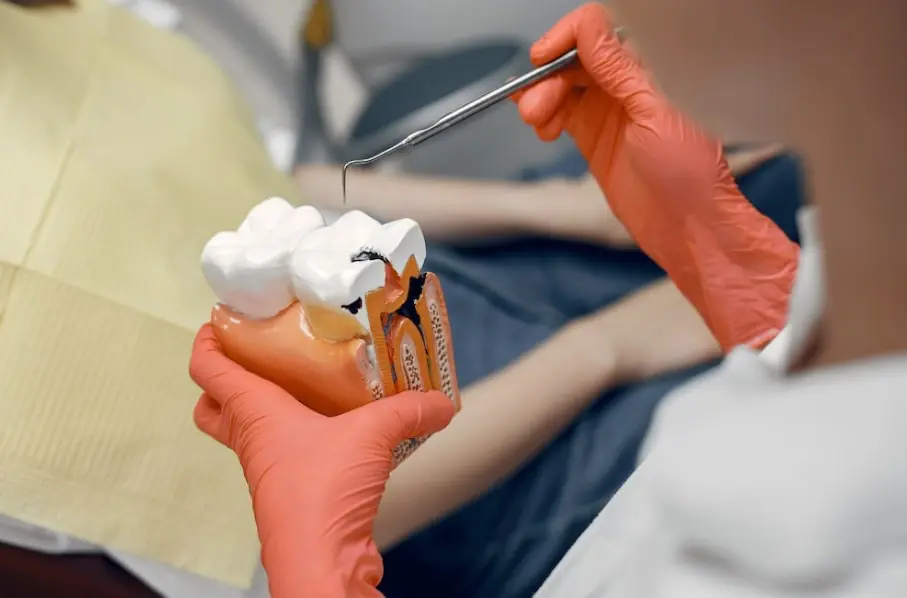Root Canal Treatment: Fast, Comfortable Relief for Tooth Pain
A severe toothache or sensitivity that won’t go away can make it hard to focus on anything else. In many cases, this discomfort signals that the inside of the tooth has become infected or damaged. When this happens, root canal therapy is often the best way to stop the pain at its source while saving your natural tooth.
Our team provides gentle, efficient root canal treatment designed to help you feel better quickly. Thanks to modern techniques, improved anesthesia, and advanced equipment, most patients are surprised by how easy the process feels. Instead of dreading the procedure, you can relax knowing you’re receiving care that prioritizes comfort and long-term dental health.
Signs You May Need a Root Canal
Root canal problems don’t always start with sudden pain. Many patients notice subtle symptoms that gradually intensify over time. Recognizing these early warning signs can help you get the care you need before the issue worsens. You may need a root canal if you’re experiencing:
- Sharp or shooting pain when chewing
- Sensitivity that lingers long after eating something hot or cold
- A cracked or chipped tooth
- Swelling or tenderness around the gums
- Darkening or discoloration in a single tooth
When you visit our office, we’ll take digital X-rays and perform a vitality test to check the health of the nerve inside the tooth. These diagnostic tools allow us to see exactly what’s happening below the surface so we can recommend the right treatment.

How Root Canal Therapy Works
Root canal therapy is one of the most predictable ways to save a tooth that has been deeply affected by decay or infection. Instead of extracting the tooth, the procedure preserves the outer structure and removes only the infected tissue inside. Here’s how treatment typically works:
- Comfort first: We start by completely numbing the tooth and surrounding area so you remain comfortable from start to finish. If dental visits make you anxious, sedation options are available to help you relax.
- Removing the infection: Once the tooth is numb, we create a small opening and remove the infected pulp. We use modern rotary instruments designed for precision and efficiency, which help shorten treatment time.
- Disinfecting the canal: After the infection is cleared, the inside of the canal is cleaned and disinfected. This step helps prevent bacteria from returning and protects the tooth from future reinfection.
- Sealing the tooth: We then fill the canal with a durable, biocompatible material that supports the tooth from within.
- Restoring strength: Most teeth treated with a root canal need a crown to restore full function and prevent fractures down the road. A crown strengthens the structure and allows you to chew comfortably again.
This complete approach helps maintain your natural tooth, supports your bite, and lowers the risk of more serious dental problems later.

Advanced Technology for Better Results
High-quality root canal therapy depends on accuracy and careful diagnosis. That’s why our office uses advanced technology designed to enhance both comfort and outcomes. Digital radiography gives us detailed images with less radiation exposure, while enhanced illumination helps us see small areas of concern that could be missed with traditional lighting.
Electric handpieces allow for smoother, quieter treatment and let us clean canals efficiently with greater control. These tools help us complete root canals with a high level of precision, minimize discomfort, and reduce the time you spend in the chair.

Meet Your Dentists
Dr. Emily Hubis, DMD
Dr. Emily brings advanced training in restorative and endodontic care. Patients appreciate her gentle approach and her focus on creating a calm, reassuring experience during procedures like root canals. She is committed to providing care that protects your natural teeth and restores comfort.

Dr. Matthew Hubis, DMD
Dr. Matthew specializes in precision-based restorative treatment and performs root canal therapy regularly. His experience and attention to detail help patients achieve excellent long-term results. Whether you’re dealing with a painful tooth or need a complex restoration, Dr. Matthew ensures each step of your care is handled with accuracy and compassion. Together, Drs. Emily and Matthew offer the skill, technology, and personalized care needed to help patients feel confident throughout the treatment process.

Aftercare: What You Can Expect
Healing after a root canal is usually straightforward. Most patients feel better almost immediately, with pain relief noticeable within a day or two. Mild tenderness around the treated tooth is normal and should fade quickly. Over-the-counter medication is often enough to manage any residual soreness.
We’ll send you home with clear aftercare instructions that explain how to protect the tooth while it settles. It’s important to avoid chewing on the treated side until your final restoration is placed, especially if the tooth needs a crown. If discomfort lasts longer than expected or something feels off, we encourage you to contact our office so we can check the area.
Schedule Your Root Canal Consultation
If you’re dealing with tooth pain or sensitivity, don’t wait for it to worsen. Early intervention protects your overall health and stops the infection from spreading. Our dentists are here to provide fast, compassionate care and long-lasting relief.
Call River District Smiles today to schedule your root canal consultation and get back to feeling like yourself again.

